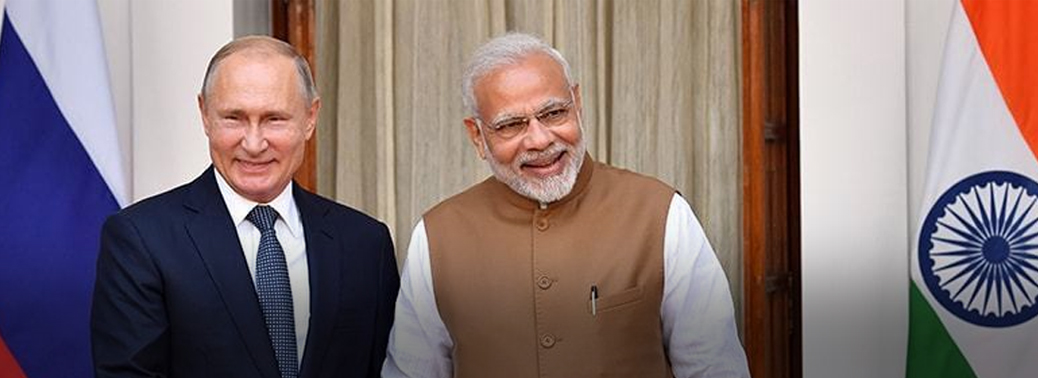INDIA -RUSSIA COLLABRATION ON GAGANYAAN
12, Sep 2018

Prelims level : Science & Technology / Mains: GS Paper – III Awareness in the field of Space
Mains level :
- India has sought assistance from Russia in its manned space programme in the area of training the astronauts, life support systems and crew modules.
About:
- The talk of Russia assisting India in the manned space mission came up during the meeting in Moscow between external affairs minister Sushma Swaraj and Russia’s deputy prime minister for defence and space industry a week ago.
- A proposal was made about Russian specialists’ assistance in conducting various stages of selection of candidates for the flight, as well as (the candidates) passing a training course in Russia and assistance in the subsequent training of Indian astronauts in India,
- In 2015, India and Russia signed an agreement to pursue joint programmes in a few areas of space research. Indian Space Research Organisation (ISRO) and Russian Federal Space Agency (ROSCOSMOS) signed a new Memorandum of Understanding (MoU) on expansion of cooperation in the field of the exploration and use of outer space for peaceful purposes.
- This new MoU provides scope for developing joint activities in areas of mutual interest, including satellite navigation, launch vehicle development, critical technologies for human spaceflight programme, remote sensing of Earth, space science and planetary exploration, and use of ground space infrastructure.
- India will become the fourth country after Russia, US and China to send a human to space on its own, if it successfully completes the mission.
Gaganyaan:
- Gaganyaan is an Indian crewed orbital spacecraft intended to be the basis of the Indian Human Spaceflight Programme.
- The spacecraft is being designed to carry three people, and a planned upgraded version will be equipped with rendezvous and docking capability.
- In its maiden crewed mission, Indian Space Research Organisation’s largely autonomous 3.7-tonne capsule will orbit the Earth at 400 km (250 mi) altitude for up to seven days with a three-person crew on board. The crewed vehicle is planned to be launched on ISRO’s GSLV Mk III in 2022
International Co-operation:
- India has always recognised that space has dimension beyond national considerations, which can only be addressed along with international partners.
- Over the years, as ISRO has matured in experience and technological capabilities, the scope for cooperation has become multifaceted.
- ISRO has the benefit of International cooperation since inception. Establishment of Thumba Equatorial Rocket Launching Station (TERLS), conduct of Satellite Instructional Television Experiment (SITE) and Satellite Telecommunication Experiment Project (STEP), launches of Aryabhata, Bhaskara, Ariane Passenger Payload Experiment (APPLE), IRS-IA, IRS-IB satellites, INSAT series of satellites, Mission to Moon, Human Space flight Programme Initiatives, etc., have the components of international cooperation.
- ISRO is pursuing bilateral and multilateral relations with space agencies and space related bodies with the aim of building and strengthening existing ties between countries; taking up new scientific and technological challenges; refining space policies and defining international frameworks for exploitation and utilisation of outer space for peaceful purposes.
- Specifically, the developing countries look to India for assistance in building up their capabilities to derive benefits of space technology. The scope of international cooperation has become wider and diverse, as ISRO has made tremendous progress in recent time.
- The data products generated from recently launched OCEANSAT-2 and Scatter meter is made available globally in near-real-time for global applications through an arrangement with EUMETSAT.
- India continues to play active role in deliberation on Scientific and Technical and Legal sub-committees of the United Nations Committee on the Peaceful Uses of Outer Space (UN-COPUOS) and others.
ISRO-Russia:
- Russia has played an important role in India’s space journey, and space remains one of the key pillars of the strategic partnership between the two countries. Over the years India’s indigenous space programme has benefited from Russian technical and scientific assistance.
- The first man to travel to space, Russian cosmonaut Yuri Gagarin predicted a future collaboration between the two nations, back in 1961, when he spent 8 days in India. Two decades later, Rakesh Sharma made the nation proud, becoming the first Indian to travel to outer space, on board the Soyuz T-11 spacecraft with a Russian commander and a Russian flight engineer.
- India and Russia have a four-decade strong relationship in the field of space. The former Soviet Union launched India’s first two satellites, Aryabhata and Bhaskar, into orbit from Baikonur Cosmo drome. Aryabhata was launched on the Soviet launch vehicle Soyuz.
- Even today, both countries cooperate on lunar and Mars exploration missions. India will be using Russian isotope products in its lunar mission Chandrayaan-2, which will be launched in 2018.






